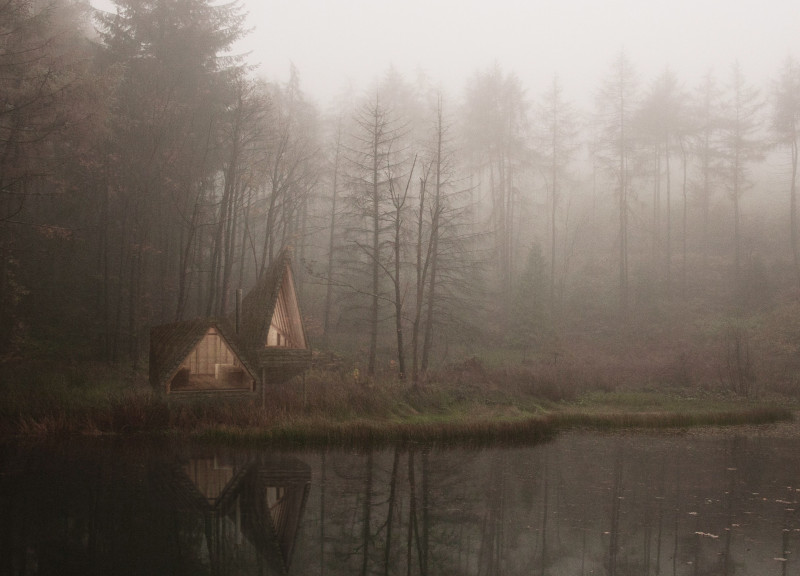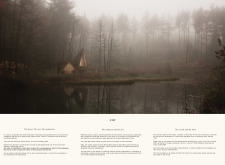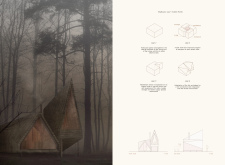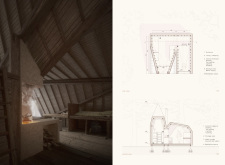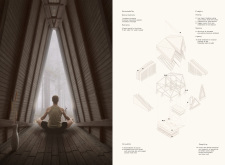5 key facts about this project
The structure is elevated to minimize environmental impact and improve durability. The primary materials selected include locally sourced wood and natural insulation panels, which not only enhance the aesthetic appeal but also align with sustainable practices. The gabled roof design facilitates rainwater collection while providing aesthetic continuity with the forest.
Unique Architectural Features and Functionality
A defining characteristic of the "Cot" teahouse is its multifunctional layout. It consists of a central communal space featuring a fireplace, surrounded by various areas designated for living, tea preparation, and meditation. This configuration encourages community interaction while maintaining individual spaces for reflection.
The integration of tatami-like areas enhances the authentic experience of Japanese tea culture, allowing for fluid movement between different functions while retaining an open atmosphere. The elevated meditation space offers views of the treetops, contributing to a serene environment that promotes mindfulness.
Sustainable Design Approaches
The project's design emphasizes sustainability at every level. Utilization of natural materials not only enhances aesthetic appeal but also reduces the structure's carbon footprint. The design incorporates features such as reused rainwater systems and natural ventilation strategies to optimize resource use. The architectural choices promote energy efficiency while reflecting a deep respect for the natural environment.
The combination of ecological sensitivity and cultural authenticity distinguishes the "Cot" teahouse from conventional designs. The careful consideration of local context, environment, and cultural practices makes this project relevant and adaptable to its setting.
For a comprehensive understanding of the "Cot" teahouse, including architectural plans, sections, and detailed design elements, readers are encouraged to explore the project presentation further. This exploration will provide a deeper insight into the innovative architectural ideas that shape the teahouse’s form and function.


